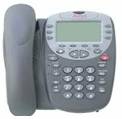December 2020 CIO Update
As the VCU Winter Break approaches, I want to say THANK YOU to all of the IT staff across VCU who have played such a critical role in keeping VCU running, making VCU safe, and supporting tens of thousands of people learning, working, and receiving care. This year has certainly demonstrated how critical technology is to supporting VCU’s mission. For this entry, I’d like to highlight the work of our Telecommunications team and Web Services team, noting that they could not have completed these projects without the support of other Technology Services team members.
Major Telecommunications Upgrade
On September 16, 2020 VCU Telecommunications completed a 1.5-year, multiphased project to redesign and upgrade our Avaya Aura Communications Manager; the platform that provides all voice communications for 20,000+ users of the University and the Health System. The upgrade itself affected 42 servers. While that was a significant effort the larger effort was in the redesign for delivery of voice services.


Transitioning from physical servers at Main Hospital and Harris Hall to new, dedicated virtual clusters at the University Computer Center (UCC) and Harris Hall required the expertise of our VMware and network teams as well as our vendors; ConvergeOne and Avaya. Over the course of approximately 12 months and numerous planning sessions, the UCC engineered and deployed two new VXrail clusters configured to the specifications outlined by the Telecommunications Services voice engineers. During the same window, the VCU Network Services team devised a plan to seamlessly migrate the network in a phased approach to ultimately provide a design that spans two data centers operating as one, virtual platform.
One of the challenges the team faced was minimizing downtime to the VCU Health System. This became increasingly more important due to the COVID-19 pandemic. A phased approach over four (4) months stretched to seven (7) months as a result of the COVID-19 shut down. Between March and September, 29 survivable servers were upgraded and eight (8) application servers were migrated to the virtual platform. The night of September 16, the Telecommunications Services voice engineers and VCU Network Services team choreographed the final transition in conjunction with our VCU Health System partners. By the early morning hours of September 17, 20,000+ telephones, as well as the mobile Avaya IX Workplace application, departmental customer applications such as the garage parking gates, and VCUHS contact centers had been successfully transitioned.
While the project was spearheaded by VCU Telecommunications Services it was successful because of the planning and expertise provided by our core members in VCU Network Services and the UCC. This was truly a team effort and a team success.
Resident Messenger Service
In October, Web Services partnered with Residential Life and Housing to create a communication system that would allow students who have been relocated to designated COVID-19 quarantine and isolation dorms to receive timely updates regarding the status of their stay. The messages sent by this system would be critical to safely connect with students while also ensuring COVID-19 safety protocols were met. After initial discussions, the working group decided on a few key requirements of the system:
- allow designated employees to craft personalized messages to individual students or send generic messages to groups of one or more students
- messages should be pushed to students in near real time and in a way that is convenient for students to read
- staff needed to be able to author messages from an easy to use mobile web interface
The working group also decided to use SMS communication as the communication delivery mechanism since it allows for instant communication without the need for students to install new apps or own a smartphone.
Web Services staff were able to build the custom system, named Resident Messenger, in just ten business days. The screenshots below show the web based dashboard that was created to allow Residential Life and Housing to author messages and manage students’ contact information.
To date, messages sent by Resident Messenger include coordinating meal delivery, scheduling trash pickup, communicating transportation options and informing students about the intake and release procedures to and from the isolation and quarantine dorms. Although the system is still fairly new, Technology Services has received lots of positive feedback from the Residential Life and Housing team on how this tool has enabled them to be more effective in their new COVID-19 related operations.
For more on Technology Services’ work in 2020, please check out our annual report at https://ts.vcu.edu/media/technology-services/assets/content-assets/documents/annual_report_finalOnline.pdf.

Please accept my best wishes for a restful holiday season! I hope everyone has time to enjoy some time away from work, and I want to particularly thank those of you working during winter break! Stay safe and healthy!
Alex